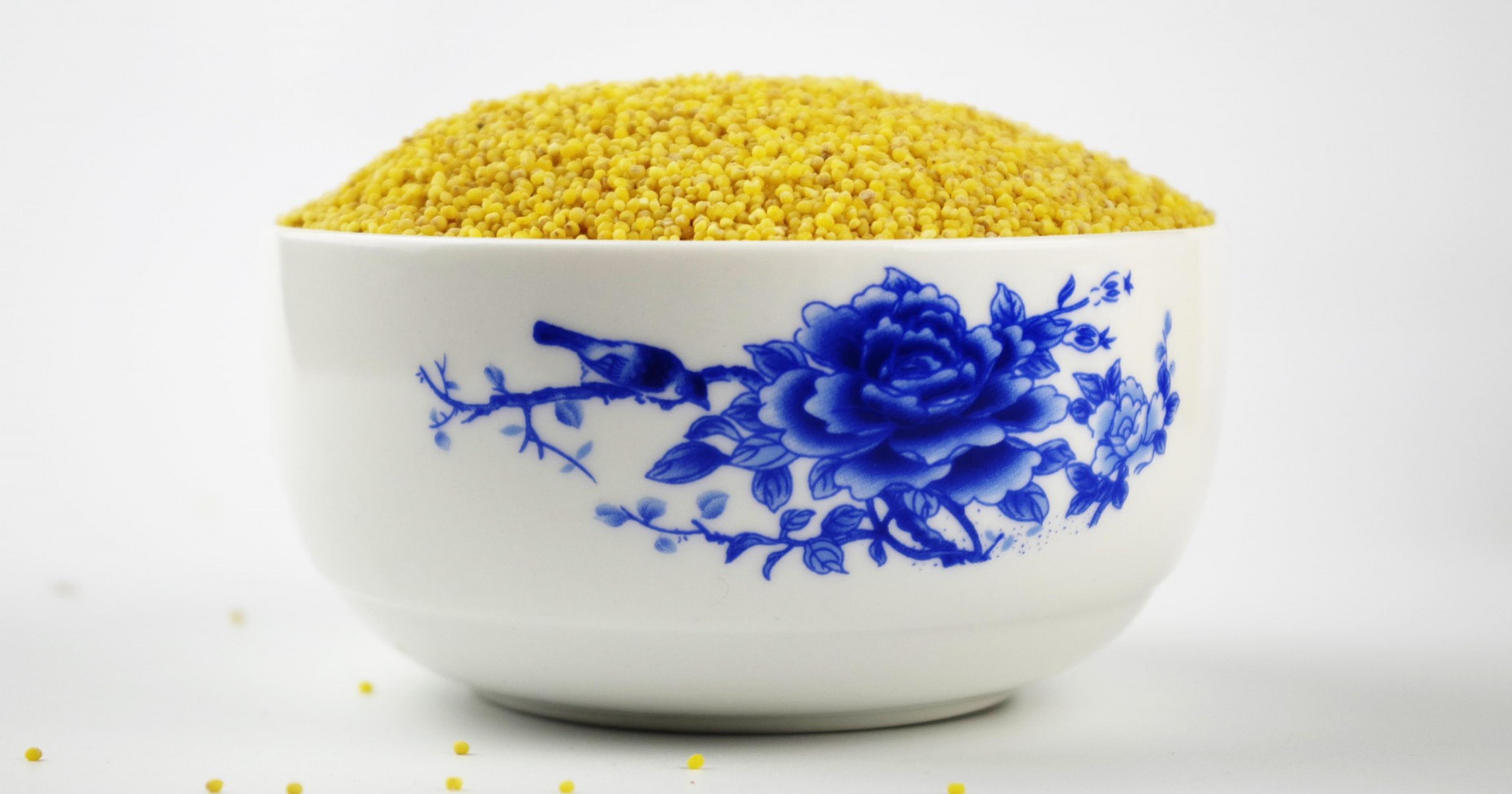Millet

Millet grains are the seeds of a number of plant species from the millet family. These plants have one great advantage – resistance to drought – which made them a staple in people’s diets across Asia, Africa and Europe for millennia. In northern China and the Korean peninsula, millet used to be even more common than rice. Millet also has a long tradition of being grown and used in Japan and India which is reflected in many traditional recipes. Around 5,000 BC, some millet varieties reached the Black Sea region of Europe and from there spread across the continent.
Different millet species are native to Africa and people are thought to have started cultivating around 2,500 BC. Millet has been a crucial staple in the diets of many African countries.
You may have come across millet in recipes for the Indian flatbread roti, traditionally made with ground millet (millet flour), or other Indian dishes. Millet is incredibly versatile and can be used in sweet dishes, such as porridge or sweet bakes, in bread (it can completely substitute wheat) and in savoury cooking in place of rice or couscous.
Millet is gluten-free and as such popular among people with gluten allergy, intolerance or sensitivity. However, even if you love and tolerate gluten, millet is an excellent addition to your diet – it’s very low in fat, a good source of some B vitamins (not B12 though) and important minerals, such as magnesium, phosphorus, zinc, copper and manganese. It also contains small amounts of iron, potassium and selenium and some powerful antioxidants. And, of course, millet is a great source of complex carbohydrates, including fibre, so gives you heathy energy and makes your digestive system happy. On top of that, a cup of coked millet contains about six grams of protein which contributes nicely to your overall protein intake.
If you’d like to give your millet dish a nuttier flavour, dry roast the grains first before boiling. Roast them on medium heat, stir frequently and when the grains have a golden colour, add boiling water to cook.
Wholegrains, such as millet, are part of a healthy diet, providing many essential nutrients and energy but they may also help prevent diabetes, heart disease, some types of cancer, weight gain and digestive disorders.




